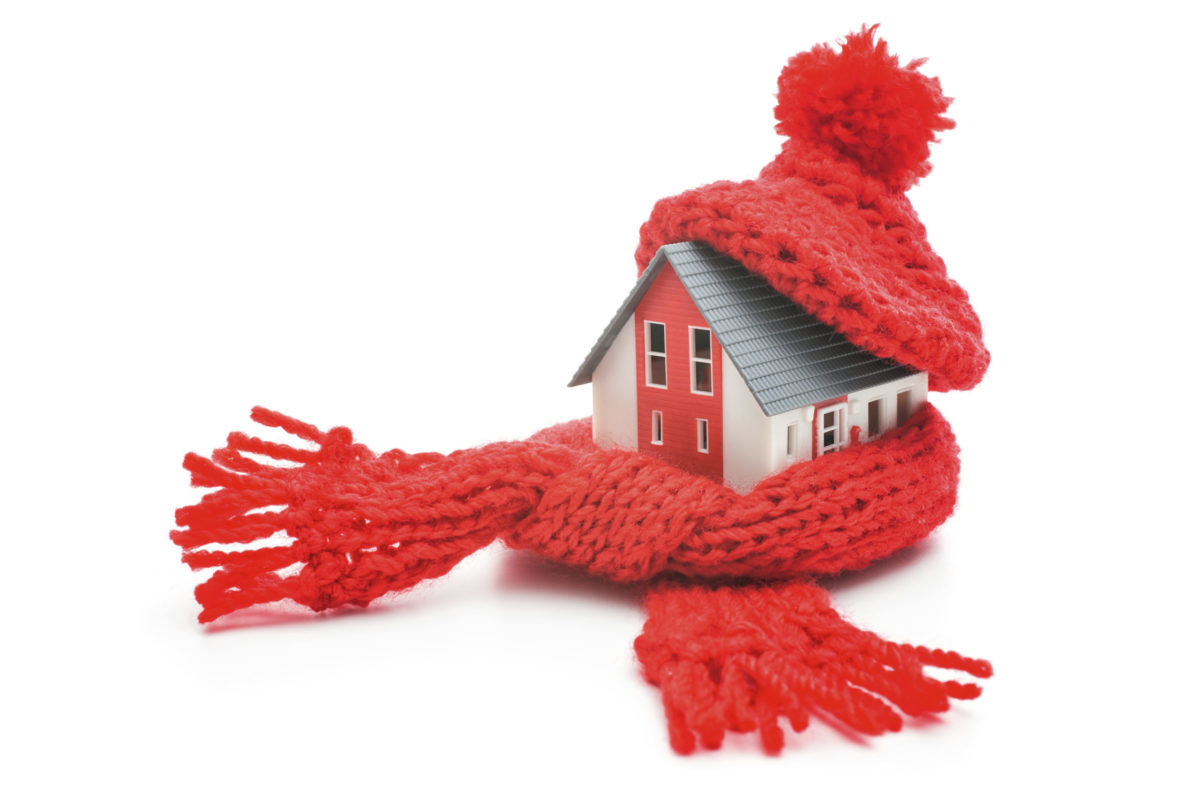Don’t get left in the cold this winter: Resources can keep you warm
By Bill Conallen
Weatherizing your home can help cost-conscious older adults save money and improve the comfort of the home. Along with cold and harsh weather, winter also brings higher energy costs. For older adults with limited incomes, the financial strain of winter utility bills can be a huge burden.
Figuring out where to start and how to weatherize your home for winter can be daunting. Read on for resources and tips to effectively reduce energy costs and increase comfort, while safeguarding your health and safety.
Weatherize
Reducing the amount of air that leaks in and out of your home is one of the most cost-effective ways to cut heating and cooling costs, improve durability, increase comfort and create a healthier indoor environment. Caulking and weatherstripping are two simple and effective air-sealing techniques that offer quick returns on investment. Caulk is generally used for cracks and openings between stationary house components, such as around door frames and window frames. Weatherstripping is used to seal components that move, such as doors and operable windows.
Programmable thermostats help your heating system operate more efficiently. These inexpensive, easy-to-install temperature modulators can help you save on heating and cooling costs. You can set the thermostat to drop to a lower temperature when you are away and at night while you’re in bed under the covers.
Many people only use ceiling fans in the summer to help keep their homes cool. But a ceiling fan can be useful to regulate your home’s temperature year round. In the winter, the direction of your ceiling fans can be changed by flipping the switch on the unit, so it rotates the rising hot air down to heat the room. Weatherization professionals also recommend that homeowners change the air filter in their furnace every three months and check filters monthly. A dirty air filter slows down air flow and makes your heating system work harder. This will waste energy and increase the cost of utilities.
Several free weatherization and utility resources are available to help older adults stay warm this winter without breaking the bank. These programs educate consumers on the proper use and maintenance of weatherization measures, as well as how to reduce energy waste every day.
The Pennsylvania Weatherization Assistance Program (WAP), offered through the Energy Coordinating Agency in Philadelphia, helps reduce heating and cooling costs for income-eligible renters and homeowners by providing free services to help conserve energy and improve safety. On-site energy audits are conducted to assess conditions in homes and to identify the most cost-effective energy-saving measures to be implemented. Priority is given to higher-risk residents, including older adults, adults with disabilities, families with children and high-energy users. For information, call 215-609-1000 or go to EcaSavesEnergy.org/pa-energy-services.
Utility bill help
The Low-Income Home Energy Assistance Program (LIHEAP), provided by the Pennsylvania Department of Health and Human Services, is another resource that helps individuals and families living on low incomes pay their heating bills by issuing a cash grant. Households in immediate danger of being without heat can also qualify for crisis grants. LIHEAP cash and crisis grants are one-time payments sent directly to the utility company or fuel provider to be credited on your bill. These grants range from $500 to $1,500 based on household size, income, and fuel type. For information, call 1-866-857-7095 or go to dhs.pa.gov/liheap.
As part of its commitment to supporting and empowering older Philadelphians, Philadelphia Corporation for Aging (PCA) established the Emergency Fund for Older Philadelphians to aid those in crisis who have exhausted other resources in paying for necessities, such as utilities, food, and medicine. In 2020, The Emergency Fund for Older Philadelphians provided $135,759 in crisis assistance to 1,134 households. Of those funds, 63% went to pay for home heating oil, and utilities.
“For many older Philadelphians who are in a financial crisis, the Emergency Fund is a critical resource that prevents them from having to make difficult decisions between using limited funds to pay utilities or even purchasing life-saving medications,” said Wanda Mitchell, PCA’s community engagement director and chair of the Emergency Fund Coalition for Older Philadelphians. “This fund helps to ease those burdens, so that older adults have an easier time meeting all their needs.”
Assistance from the Emergency Fund is granted only in response to referrals from a recognized social service agency or member of the clergy. For more information about the Emergency Fund for Older Philadelphians, Click Here>>
Bill Conallen is PCA’s public relations specialist




